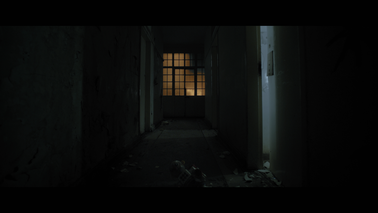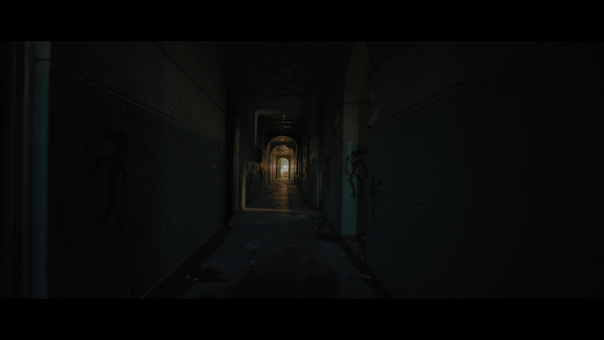 Mythology has always been a tool for explaining the things we cannot put into words ourselves. Things too terrible, too awesome, too big for us to understand. One of the most fascinating things about them, to me, is their ability to be both incredibly versatile and ever-changing, and yet static at the same time... ...Like fairytales, myths are recognizable in any form so long as we know the roots they grow from. Jerome Pikwane’s The Tokoloshe brings Zulu mythology to life against the backdrop of one woman’s fight to save the people she loves from a monster that has haunted her all her life. It tells the story of Busi (Petronella Tshuma), a woman trying to free herself and her sister from the demons of her past. Trouble is, her demons are hardly metaphorical. To earn money for her sister’s travel, she takes a night shift cleaning job at a hospital that, aside from housing the sometimes sick but more often forgotten children of Johannesburg, South Africa, seems largely abandoned. She isn’t the only staff there, but the hospital is so large she might as well be wandering alone. Which might not be so bad for a woman who’s only aim is to keep her head down, do the work, and bring her sister into the city, except there’s a demon lurking the halls—but maybe not (only) in the way you think. The tokoloshe, according to the film’s opening monologue, is a creature that’s been around since the dawn of man, lurking in forests and deep rivers, luring children and the abandoned into trusting him so he might drown them. But this isn’t just some scary story used to frighten children; it’s believed enough throughout the culture that the children’s hospital beds are built atop a pile of bricks—the only way to keep the tokoloshe from getting you in your sleep. For Busi, though, the tokoloshe is all too real. Preyed on by men since she was young, Busi has seen the demon in human form for most of her life. A male figure in her childhood sexually abused her so much they called in a doctor to perform an abortion, and the experience was so traumatic she has nightmares about it into adulthood. Almost all the men we see Busi encounter as she goes through the motions of work, trying to find a place to live, and adjust to her new life in the city are predatory in the same way. Her landlord wants to proposition her for sex in lieu of rent payment. Her boss pins her down in a hallway and asks, “how badly do you need this job?”. But she is a fighter and will not be beaten down by those around her. The only man she encounters who means her well and offers her a kind of protection against the tokoloshe—rather than trying to embody it—is a blind man named Abel she meets on a bus. He makes masks that have powers to fend off evil spirits, and in exchange for the story of what’s burdening her, he gives her one, which she hangs in her bedroom. But she isn’t the only one afraid of the tokoloshe. A young girl named Gracie (Kwande Nkosi) who lives in the hospital because her parents “were not good to her” also seems to fight him off for nights on end, and even when she’s free of the hospital he follows her. This movie is a hard one to watch. It deals unflinchingly with subject matter that’s difficult for anyone to stomach—child abuse that’s either turned a blind eye to or swept under a rug. If the newscast playing during one of Busi’s fitful nights holds any truth, though, it just might be necessary. Choppy cinematography in moments of tension, a score that heightens the mood of unease, and a monster so pervasive it doesn’t even matter that it only comes out with ten minutes left in the film, make for a harrowing experience. Weaving together English and Zulu storytelling and dialogue, it is firmly proud of its roots, and aims to shine a light on something so often ignored by framing it in darkness and telling it almost exclusively through the filters of two young women with firsthand fighting experience. After all, how do we explain the unexplainable to people who might not listen? We tell them a story. The Tokoloshe appears on VOD December 3rd from Uncork’d Entertainment. By Katelyn Nelson (Like Katelyn's writing? Leave her a tip here through Ko-fi!)
0 Comments
Leave a Reply. |
Archives
March 2023
|


 RSS Feed
RSS Feed